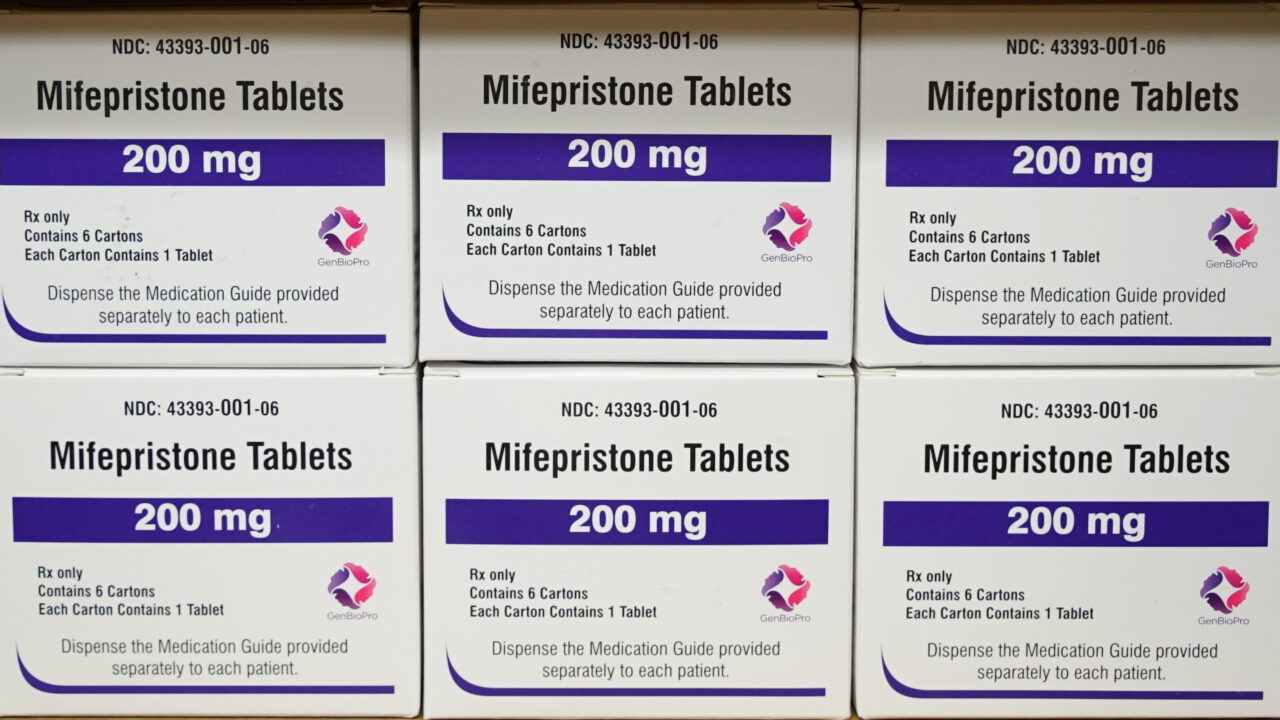Pharmaceutical Companies, Physician Bring Court Challenges to State Abortion Laws
Lawsuits filed in West Virginia and North Carolina have challenged those states' restrictions on the use of abortion pills. Boxes of the drug mifepristone sit on a shelf at the West Alabama Women's Center in Tuscaloosa, Ala., on March 16, 2022. Lawsuits have been filed in West Virginia and North Carolina challenging the states' restrictions on the use of abortion pills. (AP Photo/Allen G. Breed, File)
Boxes of the drug mifepristone sit on a shelf at the West Alabama Women's Center in Tuscaloosa, Ala., on March 16, 2022. Lawsuits have been filed in West Virginia and North Carolina challenging the states' restrictions on the use of abortion pills. (AP Photo/Allen G. Breed, File)
A lawsuit filed by a drug manufacturer against the state of West Virginia pushes back at the enforcement of draconian anti-choice legislation adopted since the demise of Roe v. Wade.
After the Supreme Court’s June 2022 decision to end the right to abortion, states have been emboldened to further restrict women’s access to reproductive health care. West Virginia’s abortion ban only allows the procedure to be performed up to eight weeks of pregnancy, in cases of rape and incest, and only if the crime is reported to law enforcement first. Survivors must present a copy of a police report or notarized letter to a physician before the procedure can be performed. Minors who are raped are given a window of 14 weeks and the option of reporting to a physician. Abortions may also be allowed in some cases of medical emergencies.
GenBioPro filed suit against the state in West Virginia’s southern district on Wednesday, charging the state government was violating Food and Drug Administration (FDA) regulations by restricting access to FDA-approved medication. The company makes mifepristone, a pill commonly used in combination with another drug, misoprostol, to bring about a medical abortion during pregnancy and manage early miscarriage.
The same day GenBioPro filed its lawsuit, Dr. Amy Bryant, a physician with the state-owned UNC Health medical system, sued the state of North Carolina over its own health care restrictions, which mandate that patients wishing to use mifepristone attend state-mandated counseling 72 hours in advance, and obtain the drug by a physician in a specially certified surgical facility.
In her filing, Bryant accused the state government of “rejecting the regulatory framework imposed by Congress and FDA” in a way that will “ impose unnecessary costs on Plaintiff and her practice and interfere with her ability to provide medical care to her patients according to her best medical judgment and in accordance with federal law.”
Pill-induced abortions now count for more than half of the abortions performed in the United States, with FDA rules allowing doctors to prescribe the pills via telemedicine or by mail.
Your support matters…Independent journalism is under threat and overshadowed by heavily funded mainstream media.
You can help level the playing field. Become a member.
Your tax-deductible contribution keeps us digging beneath the headlines to give you thought-provoking, investigative reporting and analysis that unearths what's really happening- without compromise.
Give today to support our courageous, independent journalists.






You need to be a supporter to comment.
There are currently no responses to this article.
Be the first to respond.